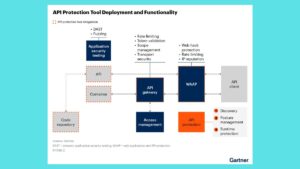The Impact of HR Tech on Organizational Culture


In today’s digital age, Human Resources (HR) technology plays a pivotal role in shaping organizational culture, influencing how employees interact, perform, and perceive their workplace environment. This blog explores the profound impact of HR tech on organizational culture, highlighting its benefits, challenges, and transformative potential.
Understanding HR Tech and Organizational Culture
HR tech encompasses a spectrum of digital tools and platforms designed to streamline HR processes, enhance employee management, and drive organizational effectiveness. When integrated strategically, HR tech not only improves operational efficiencies but also cultivates a workplace culture that fosters collaboration, innovation, and employee well-being.
1. Enhanced Communication and Collaboration
HR tech facilitates seamless communication channels across the organization, breaking down silos and promoting transparency. Collaboration platforms, instant messaging apps, and virtual meeting tools enable employees to connect effortlessly, regardless of geographical locations or time zones. This fosters a culture of teamwork, knowledge sharing, and collective problem-solving.
2. Employee Engagement and Empowerment
Engaged employees are the cornerstone of a positive organizational culture. HR tech offers engagement surveys, feedback mechanisms, and recognition programs that empower employees to voice their opinions, contribute ideas, and feel valued. By soliciting continuous feedback and measuring engagement metrics, organizations can proactively address concerns, boost morale, and create a supportive work environment.
3. Cultural Alignment and Values Reinforcement
HR tech helps align employees with organizational values and goals through targeted communication and alignment tools. By disseminating mission statements, core values, and strategic initiatives through digital platforms, organizations reinforce cultural norms and inspire employees to embody shared beliefs. This alignment cultivates a cohesive organizational identity and fosters a sense of belonging among employees.
4. Performance Management and Feedback Loops
Effective performance management is integral to nurturing a high-performance culture. HR tech provides tools for goal setting, performance reviews, and real-time feedback, enabling managers to track progress, identify skill gaps, and recognize achievements. Continuous feedback loops promote ongoing development, accountability, and transparency, driving individual and collective growth within the organization.
The Transformative Impact of HR Tech
The adoption of HR tech brings several transformative benefits to organizational culture:
- Empowerment and Inclusivity: HR tech empowers employees by giving them a voice and fostering a culture of inclusivity, where diverse perspectives are valued and celebrated.
- Agility and Adaptability: Digital HR solutions enable organizations to adapt quickly to changing market dynamics and employee needs, promoting agility and resilience.
- Data-Driven Decision Making: HR analytics provide insights into workforce trends, engagement levels, and performance metrics, enabling informed decision-making that supports culture-enhancing initiatives.
Challenges and Considerations
While HR tech offers significant advantages, it also presents challenges that organizations must address:
- Privacy and Data Security: Safeguarding employee data and ensuring compliance with data protection regulations is crucial to maintaining trust and credibility.
- Digital Divide: Addressing disparities in technology access and digital literacy among employees to ensure equitable participation in HR tech initiatives.
- Change Management: Overcoming resistance to change and ensuring buy-in from stakeholders to maximize the benefits of HR tech adoption.
Future Trends and Outlook
Looking ahead, HR tech continues to evolve with advancements in AI, machine learning, and predictive analytics. Future trends may include:
- Personalization: Tailored HR solutions that cater to individual employee preferences and career paths.
- Well-being and Work-life Balance: Tools and resources that promote employee well-being, mental health support, and work-life balance.
- Remote Work Solutions: Innovations in virtual collaboration, remote team management, and digital nomadism support.
Conclusion
HR tech is not just a tool for operational efficiency but a catalyst for shaping organizational culture. By leveraging digital innovations in HR management, organizations can create environments where employees thrive, contribute meaningfully, and feel connected to the organizational mission and values. Embracing HR tech as a strategic asset enables organizations to nurture a positive culture that drives engagement, innovation, and sustainable growth in today’s competitive landscape.
Stay tuned as we delve deeper into the evolving role of HR tech and its impact on organizational dynamics and employee experience.







